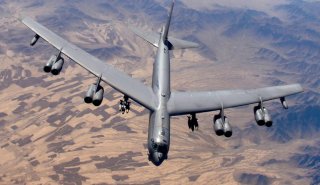NATO Goes Ahead With Nuclear Drills Amid Escalation Fears
Although the exercises were scheduled well in advance of Russia’s invasion of Ukraine, they have received greater coverage amid Russia’s threats to escalate its conflict in Ukraine.
NATO secretary general Jens Stoltenberg indicated on Tuesday that the military alliance would hold its Steadfast Noon exercises next week—an annual set of training drills designed to simulate a nuclear war.
Although the exercises were scheduled well in advance of Russia’s invasion of Ukraine, they have received greater coverage amid Russia’s threats to escalate its conflict in Ukraine. In his speech last month announcing the mobilization of Russia’s military reserves, Russian leader Vladimir Putin warned that any attack on the newly “annexed” territories of Donetsk, Luhansk, Zaporizhzhia, and Kherson in eastern Ukraine would be considered an act of war against Russia, implying that it could lead to a nuclear response. Russian foreign minister Sergey Lavrov later clarified Putin’s meaning, insisting that Moscow would only resort to nuclear weapons if it was in imminent danger of collapse and accusing Western reporters and commentators of distorting the Kremlin’s message. The foreign minister emphasized in his remarks that Russia would maintain its “no first use” policy on nuclear strikes, claiming that nuclear force would be used as an “exclusively retaliatory measure … intended to prevent the destruction of the Russian Federation as a result of direct nuclear strikes.”
Although Western defense planners have largely dismissed Putin’s specific threats of nuclear force, they have raised alarms regarding Russia’s general willingness to use nuclear weapons to avoid defeat in Ukraine.
However, Stoltenberg insisted that the exercises would continue as planned. “It would send a very wrong signal if we suddenly now canceled a routine, long-time planned exercise because of the war in Ukraine,” he told reporters in Brussels on Tuesday.
“That would be absolutely the wrong signal to send,” he continued. “NATO’s firm, predictable behavior, our military strength, is the best way to prevent escalation. If we now create the grounds for any misunderstandings, miscalculations in Moscow about our willingness to protect and defend all allies, we would increase the risk of escalation.”
In the past, the Steadfast Noon drills have run for roughly one week and have primarily involved planes rather than ground troops, including fighter jets, surveillance planes, and aerial refueling aircraft. All the jets involved are capable of carrying nuclear weapons in an actual war, but they do not carry live munitions during the simulated training exercises. Fourteen of NATO’s thirty member states—including the United States, the United Kingdom, and France, the three NATO nations with nuclear weapons—are scheduled to attend the upcoming exercises.
Trevor Filseth is a current and foreign affairs writer for the National Interest.
Image: Reuters

